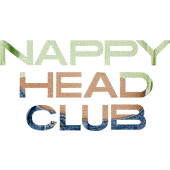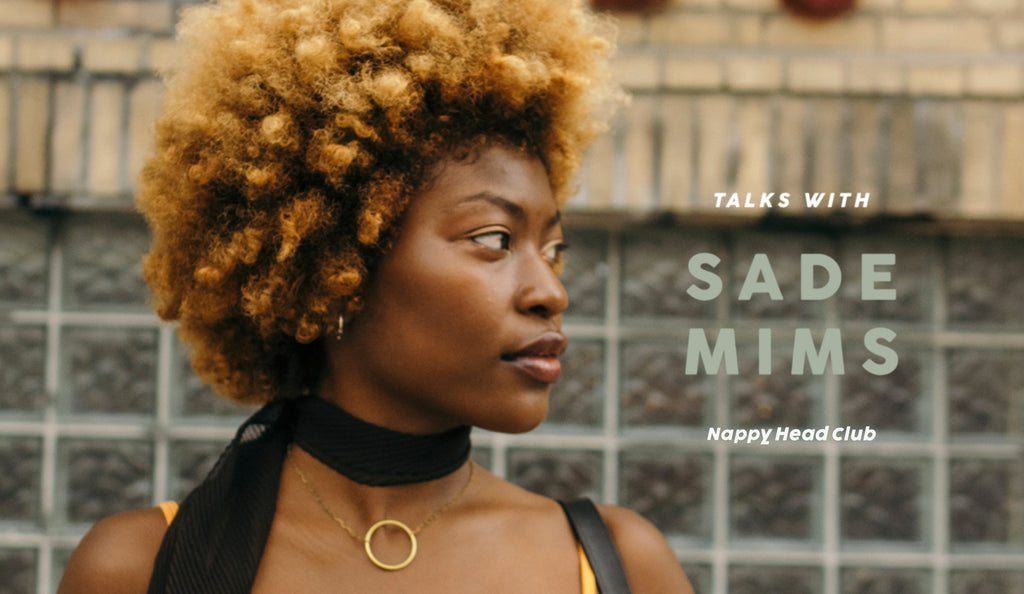Have you always been natural? What has been your perception of your hair over your lifetime. If no, what experiences took place that lead to the transition? How has going natural changed your perception of yourself?
I have not always been natural, I grew up having a perm and my mother decided when I was 12 that she wanted to stop processing my hair. Shortly after that time I began to fall in love with the practice of proud blackness. I had went to a predominantly white school, so I felt that wearing my natural curls and dressing very centric was a sense of radicalization and creating my own identity. The music I had listened to inspired me a ton as well, I had been playing a lot of Mos Def, J Dilla and Erykah Badu, and they really highlighted black culture and what it meant to be honored to be a person of color - it was refreshing. Going natural made me a lot more free, but also at that age it was taboo to be natural + darker skinned, so I had to deal with teasing and bullying from time to time. But for some reason, the taunting made me more proud of being the outcast.

We LOVE that you feature beautiful black women in natural hair styles in your brand imagery. What inspired your art direction / branding?
My art direction comes from so many things, honestly. Some collections I am inspired by the idea of movement and other times its color and vintage clothing and photography, and then sometimes I'm combining all of these things into one body of work. It really all depends. I do always include women of color in all of my editorials and lookbooks, because, why not? I have always naturally been inspired by women of color, and as a woman of color it comes natural for me to want to incorporate brown folks into my work, always.

What has your experience been creating Edas? Have you had to overcome any challenges / insecurities? What has been your biggest ‘win’ ?
Edas has been a beautiful handful! It requires a lot of work and moving parts, and since I operate the business by myself, I am constantly wearing many hats, yet learning so much throughout this process. I am always overcoming challenges and having to readily face issues, that sometimes cause insecurities and feelings of defeat. But these moments are needed and preparing me for when I have a team of my own, how to efficiently show them how things work, and be able to troubleshoot at any given moment.

If I am being honest, I don't think I have any big wins, as I truly consider all wins big at this stage, ya know? Edas is a small brand with such big dreams, and yes, we have had some incredible opportunities that I am always so geeked about, but they are all pretty big in my book, in there own way.
Do you ever get feedback that in order to grow a large & successful brand your imagery has to be ‘universal’ and not primarily feature black models? If so, how do you combat that pressure?
I typically hear this from older folks in my life, and I feel like at some point that theory might have made since, especially if you were talking to a brand owned by a non poc. But the industry is slowly progressing and has a larger responsibility then just “appearing universal”. That concept is outdated. I am interested in telling stories within my work, and dedicated to building a platform that gives a voice to folks that look like me. It's important. It's my responsibility and its non negotiable.
What would your advice be to other black business owners wanting to get a foot in this competitive market?
Id say to keep at it and to never underestimate your capabilities. I personally have discovered so many parts of myself through owning my own business, and those revelations came during moments that I had to do things that were foreign to me. So, yes, thats is, never, ever minimize your ability to perform :).
Follow Sade Sims on her Instagram, or check out her brand EDAS.




JOIN THE DISCUSSION (1 comment)
innewsweekly.com
123___Sade Mims Talks Running a Black-Owned Business – Nappy Head Club___123___